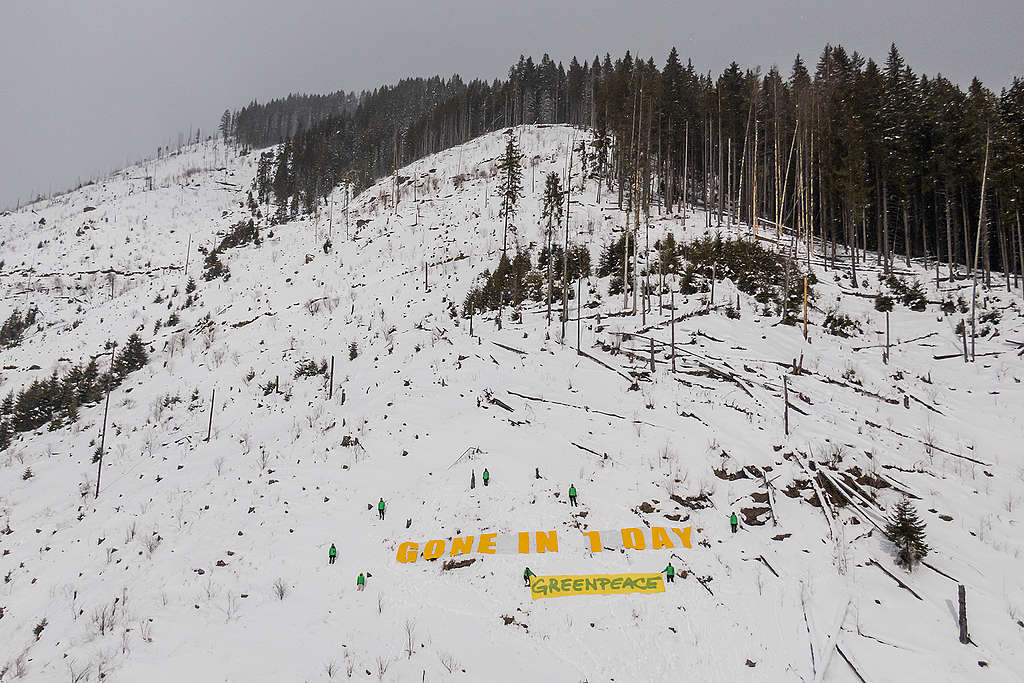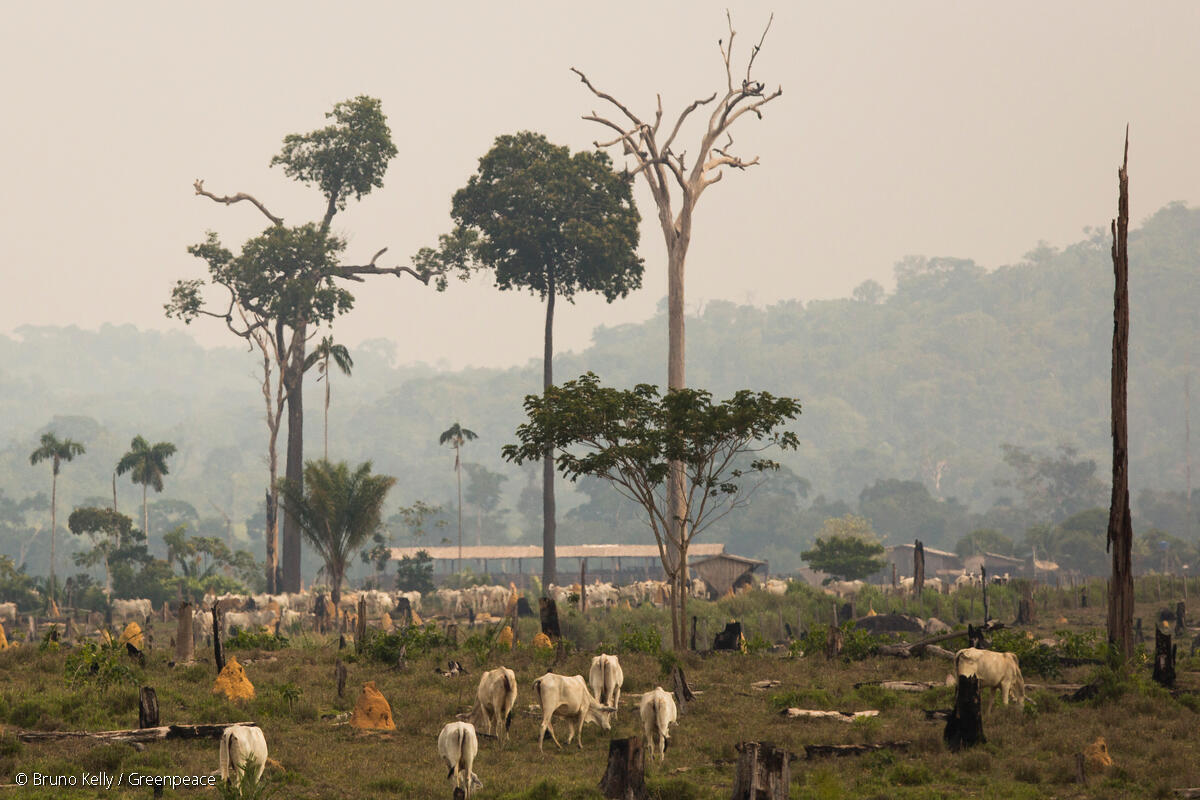Brussels – Activists in 14 countries across the EU have held protests over the past week highlighting the alarming rate at which the world is losing forests, and demanding that their ministers improve the upcoming EU anti-deforestation law. The #Together4Forests coalition of environmental organisations behind the protests is calling on national governments to curb the EU’s contribution to forest and ecosystem destruction, and human rights violations around the world, ahead of a meeting of environment ministers in Brussels next month to discuss the new law.

From Sweden to Romania, activists took aerial photos to show how quickly the world’s forests are disappearing – an area the size of a football pitch every two seconds – partly due to European consumption of products from the cleared areas. Activists are calling for products that can put ecosystems at risk (such as meat, soy, maize, rubber, wood and paper) to be proven free from nature destruction before they are sold on the EU market. [1]
**Photos from the protests available here**
Greenpeace EU agriculture and forest campaigner Sini Eräjää said: “Around the world, an area of forest the size of a football pitch is destroyed faster than even the best player could kick a ball across it. Europe makes an outsized contribution to this destruction through the consumption of many everyday products, but we have a real opportunity to end this complicity. Ministers must improve on the EU Commission’s plan and ensure that everything sold in the EU is free from forest and ecosystem destruction, and the human rights abuse that so often comes with it.”
The European Commission published a draft anti-deforestation law on 17 November 2021, after over one million people and over 160 NGOs in the #Together4Forests coalition called on them to protect human rights, forests and other ecosystems from the impacts of European consumption and investments by banks operating in the EU. The Commission’s proposal would for the first time require companies selling certain products in the EU to show that their supply chains did not lead back to destroyed forests. Environmental groups criticised the Commission’s plans, however, especially as they would only cover a small number of products, would not protect other natural ecosystems (such as wetlands and savannahs), would not adequately protect human rights, and do not cover the financial sector.
Next steps
Environment ministers from the 27 EU national governments will examine the European Commission’s proposed anti-deforestation law and will debate amendments to it. The French government in charge of the ministerial meetings has already indicated they will make this law a priority during their term. The anti-deforestation law is expected to be on the agenda of the next meeting of EU environment ministers in Brussels on 17 March.
The European Parliament has also appointed the key MEPs leading debates on the law and will carry out negotiations through the spring.
Notes for editors:
[1] Protests took place in Austria, Belgium, Czechia, Denmark, Estonia, Germany, Italy, the Netherlands, Poland, Portugal, Romania, Slovenia, Spain and Sweden
Contacts:
Sini Eräjää, Greenpeace EU agriculture and forest campaigner: +32 476 975 960, [email protected]
Greenpeace EU press desk: +32 (0)2 274 1911, [email protected]
This press comment is also available on: www.greenpeace.eu
For breaking news and comment on EU affairs: www.twitter.com/GreenpeaceEU
Greenpeace is an independent global campaigning network that acts to change attitudes and behaviour, to protect and conserve the environment and to promote peace. We do not accept donations from governments, the EU, businesses or political parties. Greenpeace has over three million supporters, and 26 independent national and regional organisations with offices in more than 55 countries.
EU Transparency Register: 9832909575-41



